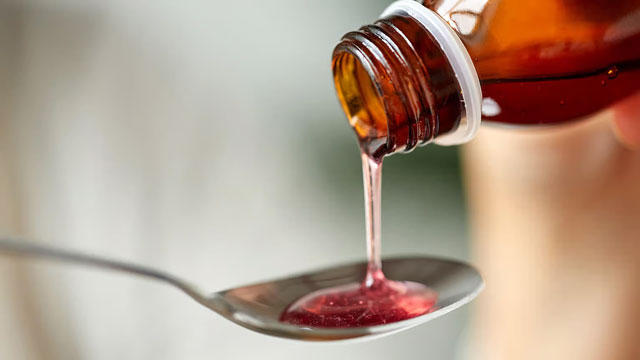Daijiworld Media Network - Bengaluru
Bengaluru, Oct 6: Following the recent deaths of several children in Madhya Pradesh reportedly after consuming cough syrup, the Karnataka health department has issued a new set of safety guidelines regarding the use of cough syrups for children.
According to the department’s advisory, cough syrup should not be given to children below two years of age under any circumstances. For children aged between 2 and 5 years, medication should only be administered under the advice of a qualified medical professional. Similarly, children above five years of age should also receive cough syrup only on a doctor’s prescription. The advisory further stresses that medicines must be used for the shortest duration and in the minimum effective dose, and that syrups containing multiple active ingredients should be avoided.

Representational image
The department also instructed that cough syrups should not be purchased or used without a doctor’s prescription and that previously used medications must not be reused. If the cough worsens, parents are advised to immediately consult a doctor. Medicines past their expiry date should not be consumed, and labels must be read carefully before use. In case of any unusual reactions such as drowsiness, vomiting, or breathing difficulties, immediate medical attention must be sought.
Key guidelines for cough syrup use in children:
– Do not give cough syrup to infants and toddlers.
– Cough and cold syrups must not be administered to children below one year of age.
– For children aged 2.2 to 5 years, cough syrup should be given only after proper medical examination and on the advice of a specialist.
Advice for older children:
– Cough syrup should be taken only under medical supervision.
– Use the minimum dose for the shortest possible duration.
– Avoid syrups containing multiple medicines or combinations.
Recommended home remedies:
– Provide plenty of fluids.
– Ensure sufficient rest and sleep.
– Offer a nutritious diet.
Consult a doctor immediately if the child experiences:
– Breathing difficulty or rapid breathing.
– Persistent or worsening cough.
– High fever and refusal to eat.
– Drowsiness or any abnormal reaction.